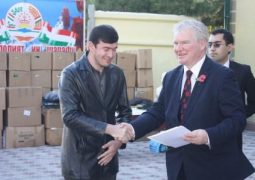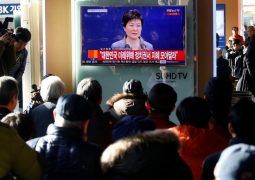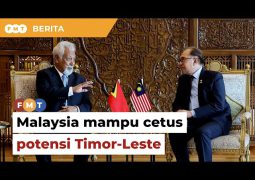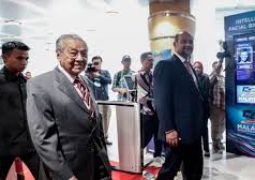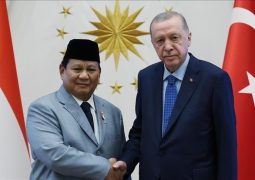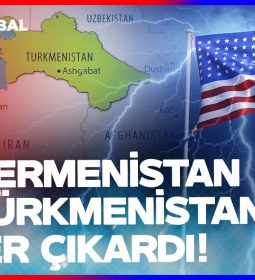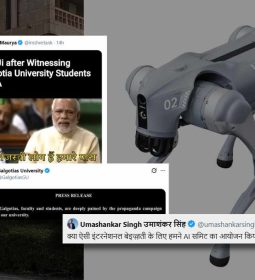Inside Trump’s standoff with South Korea over defense costs

WASHINGTON (Reuters) – When U.S. Defense Secretary Mark Esper rang his South Korean counterpart this week, he pressed for a deal quickly on defense cost-sharing that President Donald Trump expects will translate into much higher contributions from Seoul.
FILE PHOTO: South Korean Army soldiers participate in a ceremony to mark the 71st anniversary of Armed Forces Day at the Air Force Base in Daegu, South Korea, October 1, 2019. Jeon Heon-kyun/Pool via REUTERS/File Photo
But current and former U.S. officials say privately there appears to be little hope of clinching a new agreement in the coming days, and some wonder about the coming weeks and months.
Trump, they say, already rejected what was probably Seoul’s best offer ahead of its mid-April parliamentary elections – an increase of at least 13% from the previous accord, two of the officials said.
That offer and decision to reject it by the U.S. president, the details of which have not been previously reported, leaves the United States and South Korea at an impasse, even as outbreaks of the coronavirus threaten to undermine U.S.-South Korean military readiness for any potential conflict with North Korea.
But experts on the U.S.-South Korean relationship say the greater risk is damaging the alliance, born out of the Korean War, which still remains popular in South Korea.
Some 28,500 American troops are deployed to South Korea, in what is seen as a deterrent to Pyongyang that also sends a message to China about U.S. influence and capability in Asia.
Trump’s view that wealthy South Korea, which has an economy larger than Australia’s, is taking advantage of the United States is increasingly being met in Seoul by a perception that Washington has become a transactional partner with unreasonable demands.
“The current gridlock is there because they made excessive demands in the first place,” said one South Korean official with knowledge of the talks.
Trump’s decision to reject the South Korean offer came last week after consultations with Esper and U.S. Secretary of State Mike Pompeo, officials say. It followed months of intense negotiations that saw South Korea eventually propose to pay more money than ever before as part of a new Special Measures Agreement (SMA).
But Seoul’s proposed increase was far below even the substantially lowered expectations of the Trump administration, who had initially sought an exponential increase to as much $5 billion from the roughly $900 million South Korea agreed to in the last one-year, cost-sharing agreement.
“That’s not a small amount of money even if we did offer a 13 percent hike,” the South Korean official said, adding that while it fell short of the $5 billion floated by the United States, “to us, that was a non-starter in the first place.”
Esper and Pompeo argued that South Korea was paying for no more than a third of the costs most directly associated with the stationing of U.S. forces on the Korean Peninsula, not to mention other American military and intelligence assets associated with its defense.
“We were very disappointed that we couldn’t get to something that was mutually acceptable,” one of the U.S. officials said, speaking on condition of anonymity.
In one sign of just how fraught the negotiations had been at their start, Reuters has learned that South Korea last year actually presented an offer to cut its contribution.
The proposal on Nov. 19, which has not been previously reported, offended the U.S. delegation in Seoul, which cut short the talks, according to a source familiar with the discussions. The South Korean official denied a proposed cut but could not recall the exact reason for the abrupt U.S. move.
The standoff raises a long unanswered question about what the United States might do, if anything, should South Korea fail to make an offer acceptable to Trump, who has made no secret of his displeasure at the cost of deploying troops overseas.
ADVERTISEMENT
The Pentagon declined comment on the talks, referring queries to the State Department, which is leading the negotiations. The State Department and White House also declined comment on the closed-door discussions.
Trump administration officials stressed that talks were ongoing.
“The President has been clear in the expectation that our allies around the world, including South Korea, can and should contribute more,” one of the officials said, also speaking on condition of anonymity.
PRESSURE OF CORONAVIRUS
What was meant to be the final phase of negotiations in mid-March came even as the United States imposed dramatic travel restrictions over the coronavirus that made all but the most essential engagements off-limits.
That raised questions about whether in-person talks between the U.S. and South Korean delegations to be held in Los Angeles would go ahead. But they did.
South Korean negotiators obtained travel waivers and made their way to the city, the first U.S. official said.
When Seoul finally delivered its offer, it was underwhelming, according to multiple accounts of the conversations. Still, there was some hope that – given the urgent U.S. and South Korean focus on COVID-19 – the deal might be good enough.
“The one thing that gave everybody some wiggle room was COVID, right? … So there’s a public opening. And we don’t do the deal,” said a former U.S. official familiar with the discussions.
FILE PHOTO: U.S. President Donald Trump waves after his visit to U.S. troops based in Osan Air Base, South Korea June 30, 2019. Ed Jones/Pool via REUTERS/File Photo
“This was the time,” the former official said.
South Korea, held up as a model for containing the pandemic, has said it would make available test kits to the United States and help testing of U.S. troops in South Korea.
Democratic Congressman Eliot Engel, who leads the House of Representatives Foreign Affairs Committee, said on Twitter that Trump should be working with allies on COVID-19 and should not “extort friends.”
The first U.S. official said it was highly unlikely an agreement would be reached before South Korea’s April 15 parliamentary elections.
The official said there was concern that this could go well into summer and come closer to November’s U.S. presidential election, perhaps making Trump less amenable to lowering his demands.
FURLOUGHS
One of the most tangible results of the breakdown in the talks has been the roughly 4,000 South Korean workers on U.S. bases furloughed as a result of the failure to reach a deal by an April 1 deadline. The United States says it needs the South Korean cost-sharing contributions to help pay their wages.
Abraham Denmark, a former U.S. deputy assistant secretary of defense for East Asia, said this was the first time furloughs had been carried out since the alliance was created in 1953.
But the impact has not been as visible as it might have been in South Korea, in part due to the coronavirus – which has hampered the furloughed workers’ ability to gather in public to protest.
Son Gio, secretary-general of the (U.S. Forces Korea) Korean Employees Union, said his group was staging daily one-person protests near bases and in front of the U.S. embassy “because of a (government) ban on demonstrations.”
The top U.S. commander in South Korea, U.S. Army General Robert Abrams, released a statement calling the furloughs “an unfortunate day for us.” He added that they were “unthinkable” and “heartbreaking.”
Still, the furloughs have not had as much impact on bases as they might have, in part because Esper authorized Abrams to retain essential South Korean workers tied to life, health, safety, and minimum readiness. The bases are also less active, given coronavirus-related closures.
That raises questions about whether the United States and South Korea, which are more focused on the coronavirus than cost-sharing talks, will feel pressure to resolve the matter quickly.
“Unfortunately it seems like this just could drag on,” said Bruce Klingner, a South Korea expert at the conservative Heritage Foundation think-tank.
Reporting by Phil Stewart and Idrees Ali; Additional reporting by Hyonhee Shin and Sangmi Cha in Seoul; Editing by Mary Milliken and Rosalba O’Brien
- Previous WASHINGTON POST: Barr sends a message: Don’t ever investigate the president again
- Next China rejects call for probe into origins of disease




